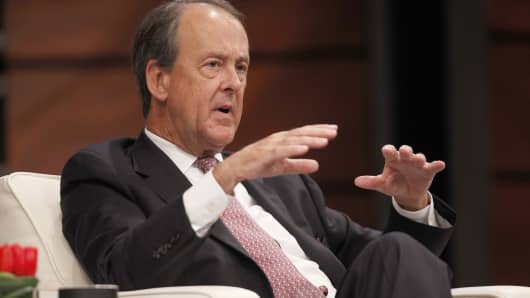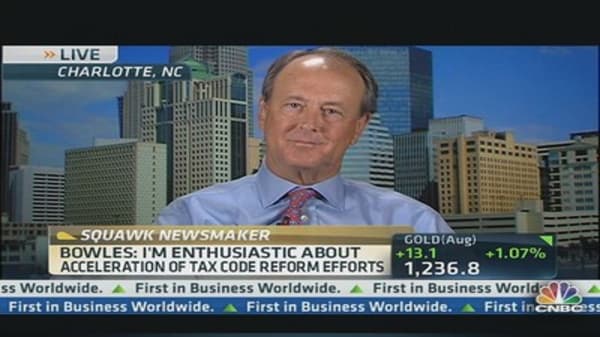A tax reform plan that would start over with a "blank slate" by eliminating all tax breaks and lowering tax rates for both individuals and corporations alike won the approval of Erskine Bowles on Monday, a former White House chief of staff to President Bill Clinton and current co-chairman of a deficit commission created by President Barack Obama to broker a bold, bipartisan deficit deal.
"Our tax code hasn't been reformed since 1986. That's 27 years," Bowles told CNBC's "Squawk Box." "I mean, just think about how the world has changed economically over the last 27 years and how the U.S.'s competitive position has changed during that time period, and think about the fact that money flows freely now and we have a tax code that is not only inefficient and ineffective, it's also globally anti-competitive."
The Senate's top Democratic and Republican tax-writers, namely Senate Finance Committee Chairman Max Baucus, D-Mont., and the committee's top Republican, Orrin Hatch of Utah, unveiled the plan last week. It calls for an unspecified, but potentially substantially lower tax rate for both individuals and corporations, though none of the current tax breaks would be included. Lawmakers would have to justify adding any tax breaks. Bowles said the plan is very similar to a proposal he had earlier made with debt commission co-chair Alan Simpson.





